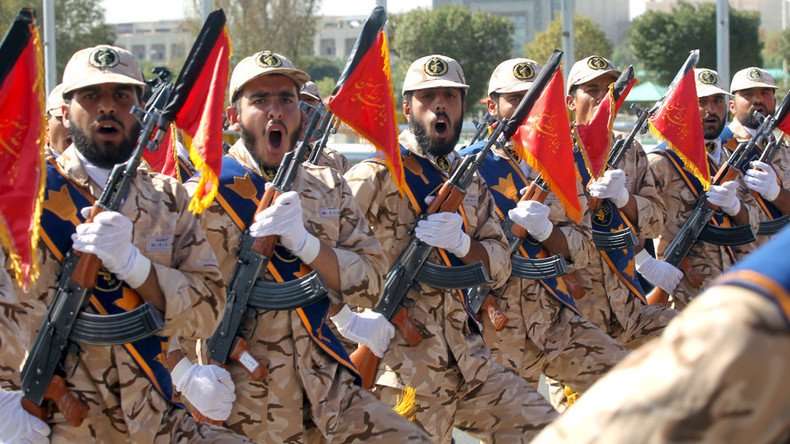Iran to buy more Russian weapons, foster cooperation – Khamenei aide

Tehran will buy more Russian-made military hardware, an advisor to Iran’s supreme leader has said during a three-day visit to Moscow. Defense ties, among other issues, were at the heart of discussions during the trip.
“Iran is willing to buy additional amounts [of weapons] from Russia, and the Russian government wants to positively respond to such requests as well,” said Ali Akbar Velayati, adviser to Iran’s Supreme Leader Ayatollah Ali Khamenei, as quoted by RIA Novosti.
Velayati arrived in Russia on February 1 to discuss strategic cooperation between Moscow and Tehran. He is believed to be one of the most important figures in the Iranian establishment, given his decades-long experience as Iran’s foreign minister and two presidential campaigns.
It is still unclear which weapons systems could be purchased by the Iranian military, as certain sanctions, including on military procurement, remain in place under a UN Security Council resolution adopted in July 2015.
BREAKING: Putin lifts ban on delivery of S-300 missiles to #Iranhttp://t.co/nYEFmcVTz4pic.twitter.com/nqYZ8yvyWa
— RT (@RT_com) April 13, 2015
In November, Iranian Defense Minister Hossein Dehghan announced that Tehran will receive Russian S-300 air defense systems by the end of the Iranian year, which is March 20, 2016.
The contract to supply the S-300s to Iran was signed in 2007, but three years later the deal was put on hold by Moscow. Tehran hit back, filing a nearly-$4 billion lawsuit against Russian arms dealer Rosoboronexport with a Geneva arbitration tribunal.
Most of the anti-Iranian economic and financial sanctions were lifted in January as part of the so-called nuclear deal. But Iran is only allowed to purchase conventional arms such as tanks, infantry fighting vehicles, large-caliber artillery systems, combat aircraft and naval vessels – and only if the UN Security Council unanimously approves such deals.
Nevertheless, on January 17 the US Treasury imposed a new set of sanctions on 11 companies and individuals which it claimed had helped to supply Iran’s ballistic missile program. The Obama administration delayed enforcing the sanctions for more than two weeks while negotiations to release two US prisoners being held in Iran were taking place, according to Reuters.
Previously, senior officials from Uralvagonzavod (UVZ) – Russia’s flagship military plant and the world’s largest tank manufacturer – said it could take part in various arms deals with Iran. Alexey Zharich, deputy director general of UVZ, told RIA Novosti on Wednesday the company is ready to launch licensed production of T-90S main battle tanks in Iran, if the remaining sanctions are lifted. “We always said we are ready to work with Iran,” he added.
BREAKING VIDEO: Iran state TV footage of moment of arresting 2 US boats & personnel pic.twitter.com/Ts4dbCBLyZ
— Sobhan Hassanvand (@Hassanvand) January 13, 2016
With its 425,000-strong armed forces, Iran is considered one of the most powerful military actors in the region. It currently operates various weapons systems, including dozens of British-made Chieftain and US-made M-60 Patton tanks, apparently supplied to Iran before the 1979 revolution. A remarkable share of the Iranian military’s inventory is made up by Soviet- and Russian-built systems.
Iran has been known to take successful steps to survive military sanctions by domestically developing its own modern arms, including Zulfiqar battle tanks, Shahab-3 ballistic missiles, Moudge-class frigates and various other boats, submarines, drones, military vehicles and fighter planes.












